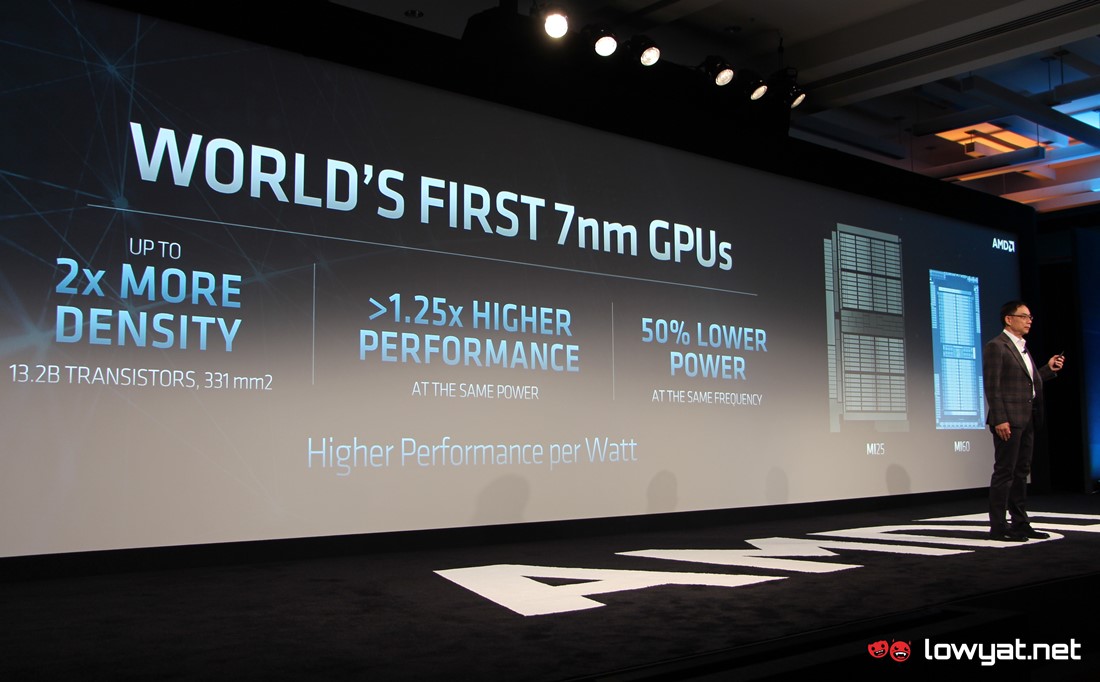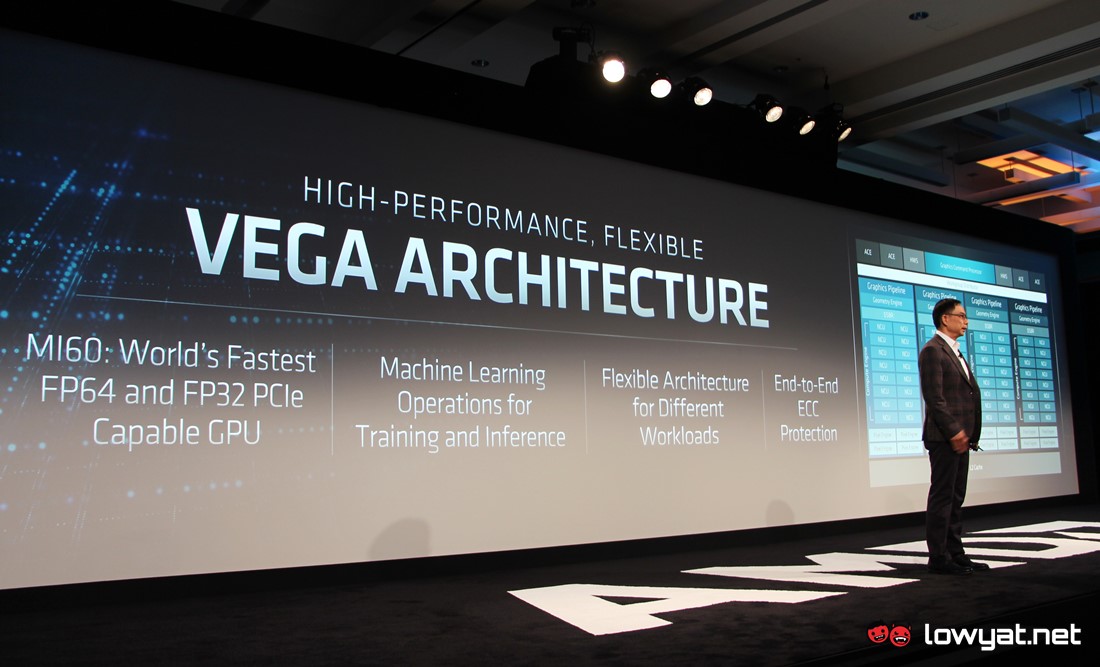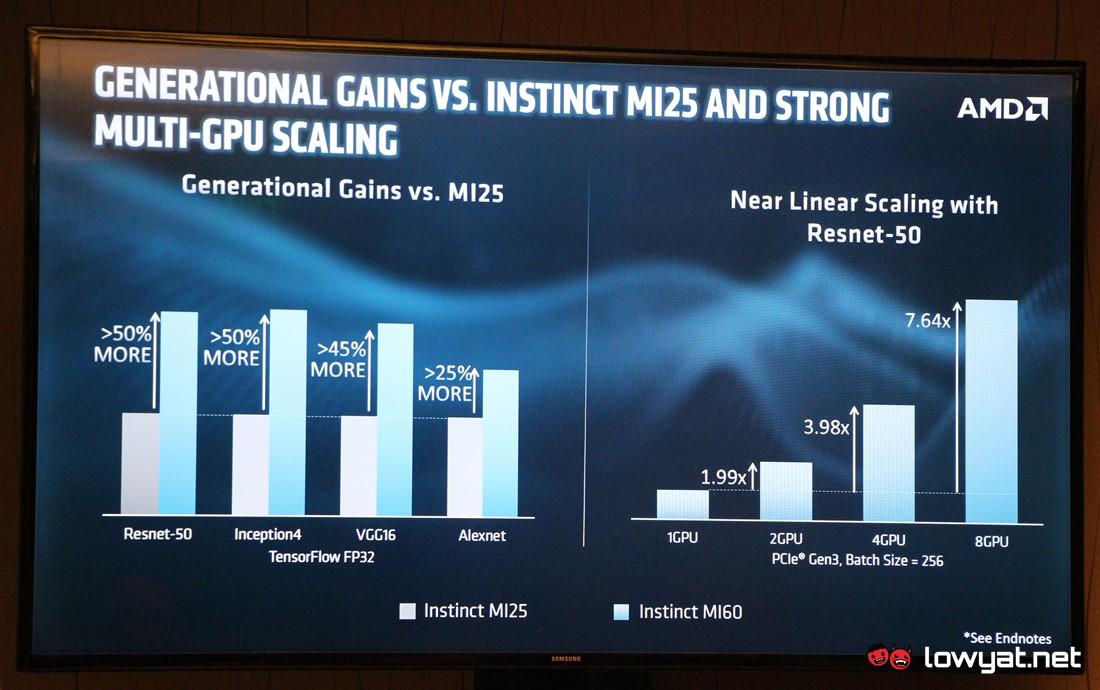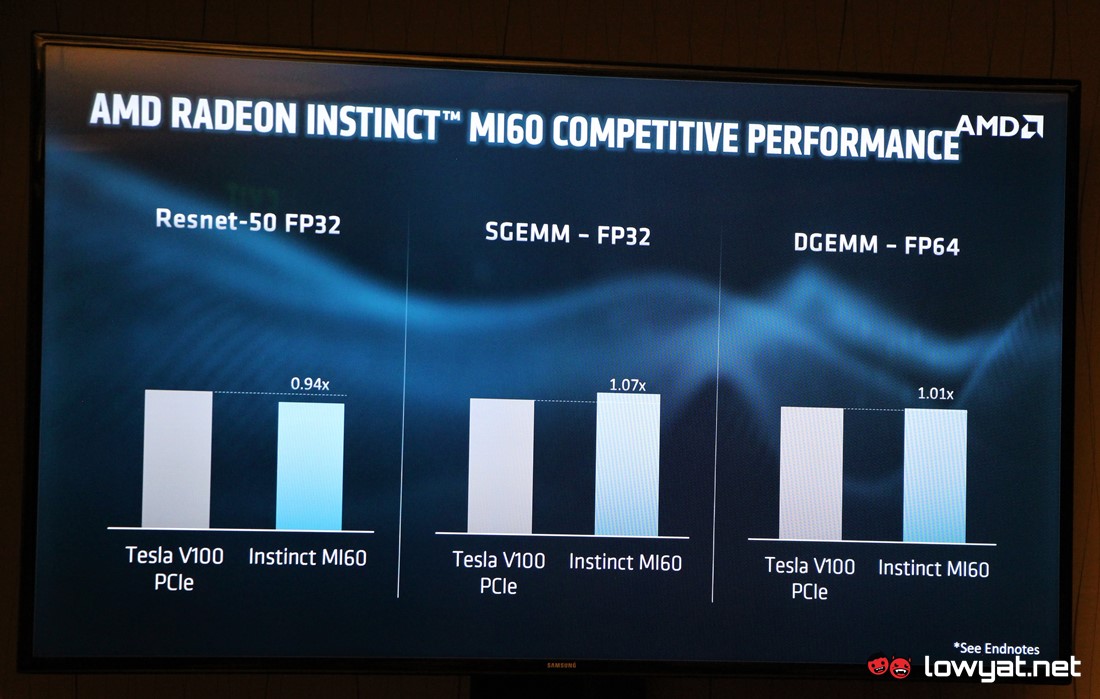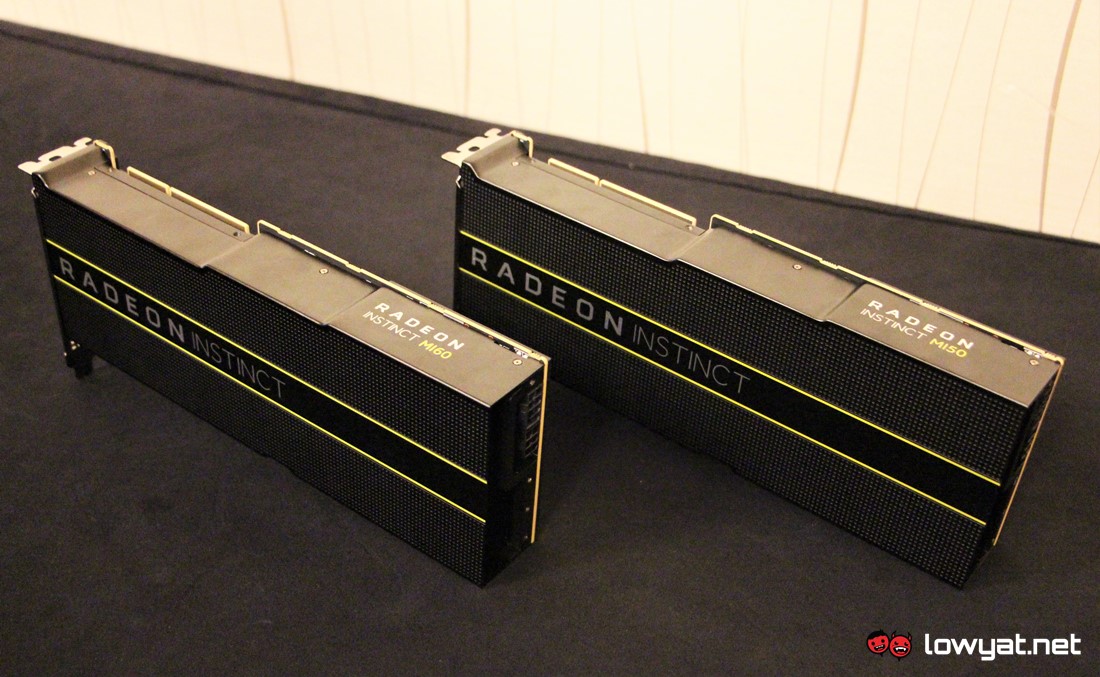As mentioned during our previous reports, Radeon Instinct cards or accelerators are not meant for gaming despite the Radeon label on its name. Instead, they are designed for data centers as well as deep learning and high-performance computing applications.
Equipped with a Vega 20-based GPU that was built on TSMC’s 7nm FinFET, Radeon Instinct MI60 carries 64 Compute Units which has 4096 stream processors with maximum clock speed of 1800MHz. The accelerator which supports PCIe 4.0 also comes with 32GB HBM2 ECC memory that runs at 1GHz and has a memory bandwidth of 1TB/s. According to AMD, the Radeon Instinct MI60 able to deliver up to 29.5 TFLOPs of FP16 performance as well as up to 14.7 TFLOPS and 7.4 TFLOPS for FP32 and FP64 respectively. It also has a peak INT8 performance of 58.9 TFLOPs as well as TDP rating of 300W.
Performance-wise, AMD claimed that the Radeon Instinct MI60 provides a significant leap over its predecessor the Radeon Instinct MI25 which was launched in June 2017. The company is still playing catch up with its close rival, NVIDIA though but the performance gap between Radeon Instinct MI60 and NVIDIA Tesla V100 is apparently quite small. AMD has also introduced the lower-end Radeon Instinct MI50 accelerator that still comes with the same 7nm Vega 20 GPU but features lower amount of Compute Units and stream processors at 60 and 3840 respectively. Alongside 16GB HBM2 ECC memory, its clock speed is also slightly lower at 1746 MHz.
In terms of release date, the AMD Radeon Instinct MI60 will be made available later this year while the Radeon Instinct MI50 will follow suit within the first quarter of 2019. For gamers, AMD’s CEO, Lisa Su has confirmed early on at Computex that the 7nm GPU will be available to them eventually although the company has yet to reveal any related release timeline for consumer-level products at the time being.
